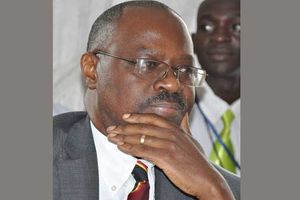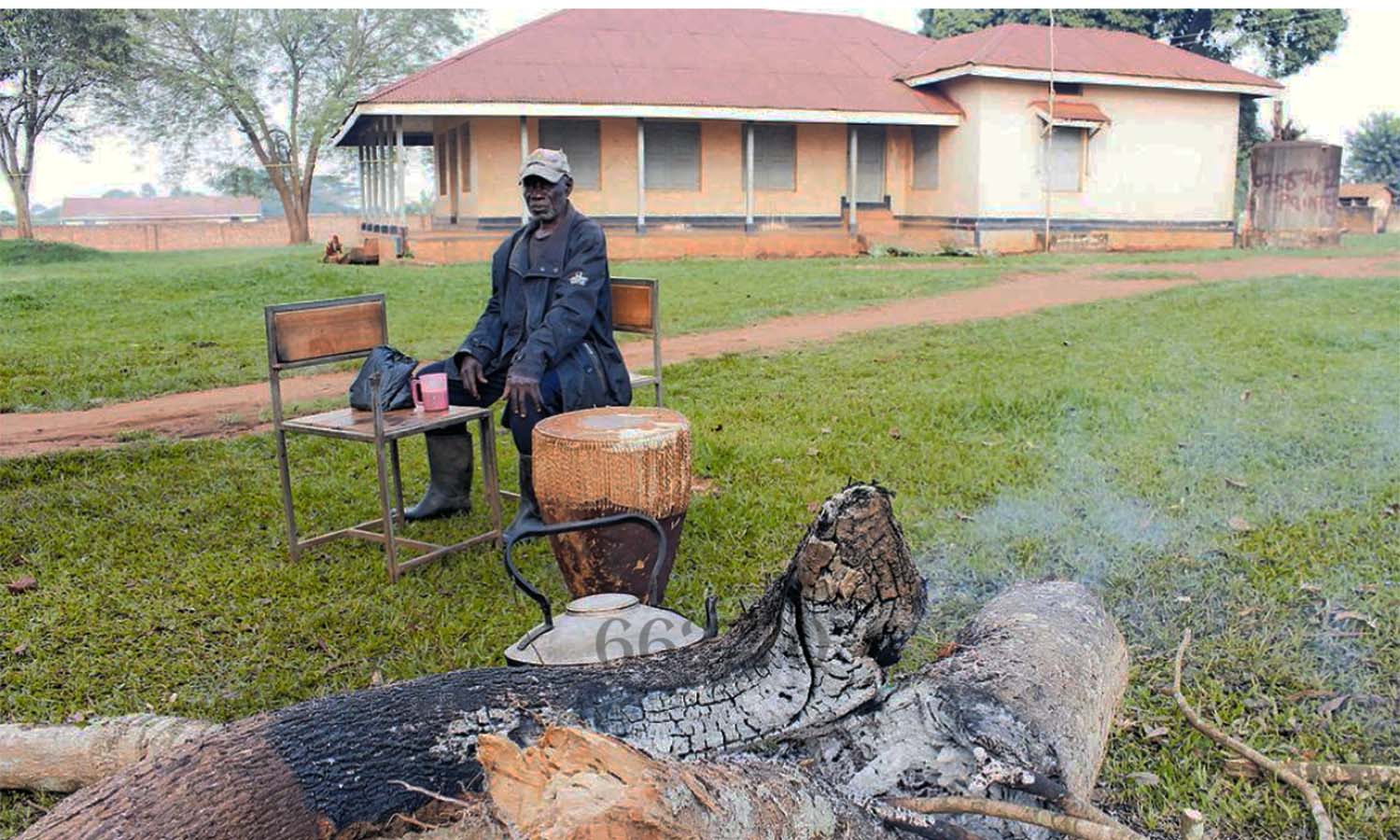
Khiddu Makubuya
On December 7, 2005, Dr Khiddu Makubuya wrote to the Electoral Commission a letter that would etch itself in the annals of political infamy.
The subject of the letter, Dr Kizza Besigye, had returned from exile in South Africa to contest Uganda’s first multiparty elections as a candidate of the recently formed opposition party, the Forum for Democratic Change.
Besigye had already run for president in the 2001 election against President Museveni, his former patient and comrade-in-arms in the guerilla war that had brought the NRA/M government to power in 1986.
He had then served in various capacities, including as National Political Commissar, a position that made him the ideologue of the new government, before falling out and running a renegade campaign.
That campaign had been covered in the blood of political violence and shrouded in allegations–many later confirmed by the Supreme Court – of electoral malpractice. Besigye had fled into exile soon after President Museveni was declared the winner.
On his return, in November 2005, he was arrested and charged with rape and treason and remanded to Luzira Prison.
He was still a visitor of the state when nominations for the presidential race came around, posing a difficult question: could someone facing charges of such a serious nature be nominated to run for the highest position in the land, and if they were on remand and unable to attend the event, could they be nominated in absentia?
No, Dr Makubuya, then the Attorney General, said in response to an inquiry from the Electoral Commission, a few days earlier. The Presidential Elections Act, he noted, did not provide for a would-be presidential candidate to designate another person to process nominations on their behalf, or be nominated in absentia.
Controversially, Dr Makubuya added: “His conduct is a subject of serious criminal proceedings. Although he is presumed innocent until proven guilty, it certainly cannot be said that he is on the same level of innocence as that of the other presidential candidates.”
Many were stunned by the legal opinion, which contradicted that of the state minister for Justice, Adolf Mwesigye. The Uganda Law Society withdrew its recognition of Dr Makubuya as Attorney General and the Electoral Commission, in any case, went ahead to nominate Besigye.
What stunned many the most was not the incongruence of the legal advice, but the stature of the man who had given it. Born on July 30, 1949, in the central part of what was still a British Protectorate, Makubuya worked his way through local schools, Ndejje Secondary School, and to Makerere University where he obtained the first first-class law degree.
He then joined Yale Law School in the United States of America where he obtained a Master of Laws degree in 1976 and a Doctor of Juridical Science three years later.
He returned to Makerere to teach law, rising to the position of associate law professor, while also becoming a partner in the private practice of Kasolo & Khiddu Advocates.
Between 1984 and 1987, Makubuya edited the Uganda Law Society Review and headed the Department of Law and Jurisprudence at the Faculty of law, Makerere University.
He was also appointed to the Commission of Inquiry into Violations of Human Rights, as well as the Uganda Constitution Commission led by Justice Benjamin Odoki which drafted Uganda’s new Constitution.
In 1995, Makubuya became director of the Uganda Human Rights and Peace Centre at Makerere University but he was already pivoting away from the world of academia.
In 1988 Makubuya was elected district councillor to represent Makulubita Sub-county in Luweero District, which had been part of the Luweero Triangle war zone.
In the 1996 General Election, he was elected Member of Parliament for Katikamu South, joining the Cabinet soon after as State Minister for Luweero Triangle.
Cabinet promotions soon followed, first as state minister for Foreign Affairs in 1998, and then as Minister of Education and Sports the following year.
By the time of his controversial legal opinion in December 2005, he had been Justice and Constitutional Affairs minister for 12 months. Despite the controversy, he would hold the top legal cabinet position until May 27, when he was demoted to Minister for General Duties in the Office of the Prime Minister.
By then Dr Makubuya was involved in another controversy, this time for approving Shs169 billion in dodgy compensation to Hassan Basajjabalaba, a businessman who also helped finance the ruling NRM party. This time it was the scale of the money heist that was stunning and, unable to defend the payment, Dr Makubuya resigned from cabinet, together with Syda Bbumba, who had paid out the money as Finance Minister, and who, coincidentally, also came from the wider Luweero region.
A brilliant academic, legal and political career had been undone by poor judgment. At the end of his parliamentary term in 2015, Dr Makubuya retreated from the public glare. In June family members were forced to denounce reports of his passing.
He was in hospital fighting for his life against liver complications and diabetes, but reports of his death were exaggerated, they said. On Sunday night at Nakasero Hospital, the truth caught up with the lies. Dr Makubuya was 75.
Lt (Rtd) Ahamed Doka, who lost the 1996 MP race to Makubuya: "We contested as candidates for Katikamu South MP seat and Makubuya beat me by 44 votes...but Makubuya was able to reach out to me. He has been a great pillar and symbol of political maturity.’’
Prof Victoria Mwaka, who served as the district Constituent Assembly representative: "He wanted a united Luweero and sought to have the different professionals and politicians work together. We have indeed lost one of the greater sons of Luweero.”
Haji Abdul Nadduli, veteran politician and presidential advisor. ‘‘Greater Luweero has not embraced the spirit of unity and wants to work as individuals. Makubuya worked for unity and wanted a better Luweero. He was a committed leader who always wanted a united Luweero’’.
Mr Norbert Mao, Justice and Constitutional Affairs minister and leader of the Democratic Party, on the microblogging platform X, formerly Twitter. ‘‘He mentored many of us. Let’s celebrate the contribution he made in life.’’






